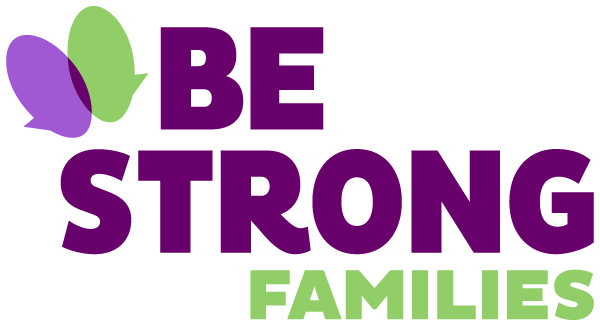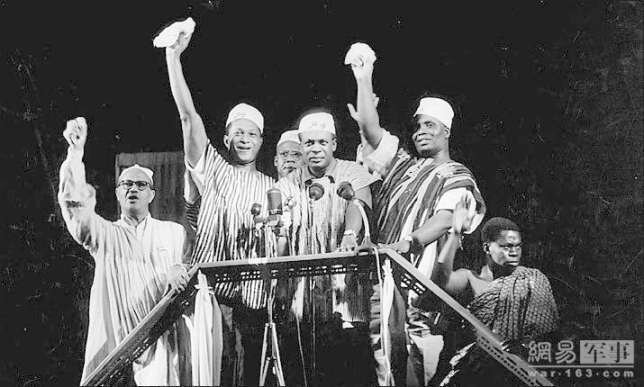White People Celebrating Black History Month? Part 3: The Responsibility And Power Of The White Ally
By: Alexandra James-Okochi, Chief Program Officer
True white allies are willing to extend the conversation about black history beyond a designated month. They engage at a deep level that requires time and understanding of the tragedies and triumphs, the trauma and resilience, and the ingenuity and genius of people who have continuously been reduced to the “other.” The thorough investigation of black history leads to a more powerful, historically-informed lens of equity to understand present dynamics of structural racism, generational poverty, and educational/health disparities. This is not easy work (nor is it comfortable), but it is very necessary to foster genuine and lasting racial healing. Dr. Alex Haley, the author of Roots and The Autobiography of Malcolm X, said, “Unless we learn from history, we are destined to repeat it. This is no longer merely an academic exercise, but may contain our world’s fate and our destiny.”
A great place to start is with the following African and African American scholars and writers: Franz Fanon, John Henrik Clarke, Ivan Van Sertima, Dr. Frances Cress Welsing, Chiek Anta Diop, Chinua Achebe, Toni Morrison, Harriet A. Washington, Angela Davis, Ralph Ellison, Amos Wilson, Jawanza Kunjufu, Ta-Neshisi Coates, Dr. Joy DeGruy, and Bell Hooks. I intentionally chose these authors because their material expands across various disciplines, including archaeology, history, psychology, sociology, and black womanist philosophy. Their work spans from ancient history to the modern era and gives the reader a clearer understanding of current political and social constructs. Systems of oppression, such as colonialism, patriarchy, generational poverty, political injustice, educational inequality, racism, and white privilege are not merely isolated moments in history, nor are they events that happened long ago. African Americans and African people around the world should not be expected to “just get over it.” These structures create an oppressive continuum of white supremacy and an ethnocentric grip that continues to manipulate and disconnect the minds of humanity across the world.
The study of the pre-colonial African civilizations such as the Benin Empire, the Kush Empire, Ancient Nubia, the Mali Empire, the Kingdom of Ghana, the Akusmite Empire, the Kingdom of Kongo, and the Songhai is imperative. In order to colonize the continent of Africa, to rob its natural resources, and to institute chattel slavery into African history, many African traditions (whether they be civilizational, cultural, or spiritual) had to be reduced worldwide to be viewed as “primitive,” “uncivilized,” and “in need of the benevolent European conqueror.” This eventually led to Europeans acting as missionaries and attempting to “bring civilization” to Africa.
The idea that Africa—a vast and expansive continent—was without sophisticated and complex nations still permeates the American and the world psyches. This grossly inaccurate and intentional misinformation only began to change in American academia and in the arts during the mid-19th century and during the Harlem Renaissance. The leadership of Kwame Nkrumah during Ghana’s independence in 1957, which led to other African nations becoming independent and free from colonial rule, also helped to shift the viewpoint.
Kwame Nkrumah
However, despite these and other movements (such as Civil Rights, Black Liberation/Black Pride Movements, and Afrocentrism) occurring between the 1920s through the 1970s, the dominant narrative of African people being “primitive” and the cultural depiction of African Americans as lazy, ignorant criminals has only moderately changed. To only show cultures that intentionally remain disconnected from modernity and continue to be in-tune with nature (or different areas of nations that have been ravaged by continuous poverty due to lingering effects of colonialism) is irresponsible. It is akin to using the characterization of the Dark Ages in Europe as being a time of violence and lacking intellectual vigor, the disheartening extreme poverty in the mountains of West Virginia, and the current meth crises in the white community as the sum total of the civilization, culture, and current state of Europeans and white Americans.
That might seem blatantly ridiculous to a white person, but African Americans are faced daily with others' limiting stereotypes of them. One of the first examples I encountered was when I went to driving school as a teenager in the 1990s. I met a girl from China who had just moved to America with her family. As we began to talk, she told me that, prior to coming to the U.S., she had thought that the majority of African Americans were drug dealers or prostitutes, because those were the only images that she saw of us while growing up in China, outside of sports and music. Another example of such prejudice is the notion that the majority of African Americans are on welfare or are criminals, which remains to this day and has resurfaced during the current political climate.
Perception is reality to those who don’t seek to understand current social constructs. It is also reality to those who are limited from exposure and by their sphere of influence. This is where white allies can (and should) wield their power. As historically and culturally informed white allies, your voice to other white people who are less informed is paramount in helping to disrupt the current and historical narrative around race. You are the powerhouse of empathy, knowledge, and cultural humility that can propel the next phase of “the American Experiment” to reach and live out its ideals of liberty and (social) justice for all.
As an African American woman, I don't feel it is my work to educate white people about race—except in my personal and professional relationships or within the context of professional forums, discussions, or panels. My first and foremost responsibility is to assist African Americans and African people in the diaspora break the mental, social, economic, and political chains that exist from our historical trauma and current social and political inequities. My power is in my existence as an African American woman who is a socially and politically conscious artist, a community volunteer, a staunch supporter of black-owned businesses and community organizations, and a professional with a career path that helps to disrupt oppression and that rebuilds our communities from the inside out.
The responsibilities and power of white allies are paths that include not only serious study, but also include maintaining self-accountability in their relationships. A truly committed white ally understands that good intentions are not enough—that they must go to war with their own white fragility, guilt, and privilege, which is incredibly hard to do. Such processing cannot not be done in isolation. If you consider yourself to be a white ally, you must have formed deep, meaningful, long-term, and close relationships with people of color where these issues have been thrashed out. It is in those relationships where people can struggle and grow and where character can be refined.
While I have encountered many politically progressive white people who have good intentions, the truth is that I have had only one relationship with someone I'd consider a true white ally (and she prefers not to be named). What differentiates her from others is that she has done a serious and in-depth study of history, as well as continuously immersing herself in modern social justice and equity. She has people she loves deeply within her personal circle who are black, as well as many African American colleagues. We engage in constant conversations where we meticulously dissect the current narrative. This white person has helped me to be empathetic to and to see the level of deconstruction it takes to truly walk with people of color, versus just having good intentions. She constantly holds herself accountable and uses her voice in spaces where equity and social justice are often easily dismissed. The relationship I have with her (and am currently forming with others) speaks to the power that relationships have to transform. They are perfect examples of the adage “iron sharpens iron.”
When the macro level of perceived societal division falls away, what is left is an understanding that we have way more in common than we may think. We all want the same things: loving relationships, good health, a thriving, economically stable family, positive well-being, and to live in productive, beautiful, and safe neighborhoods. We all want to live in a society that doesn’t create barriers to accomplishing these goals. I am fully committed to doing my part in order to make this reality—firstly for African Americans and all people of color. It is my hope that all white people who consider themselves to be allies will, in turn, do their part to speak the truth, especially to those in power and to people who are not yet able to truly hear voices belonging to people of color. Our respective roles are inextricably bound to each other and to the evolution of humanity.



